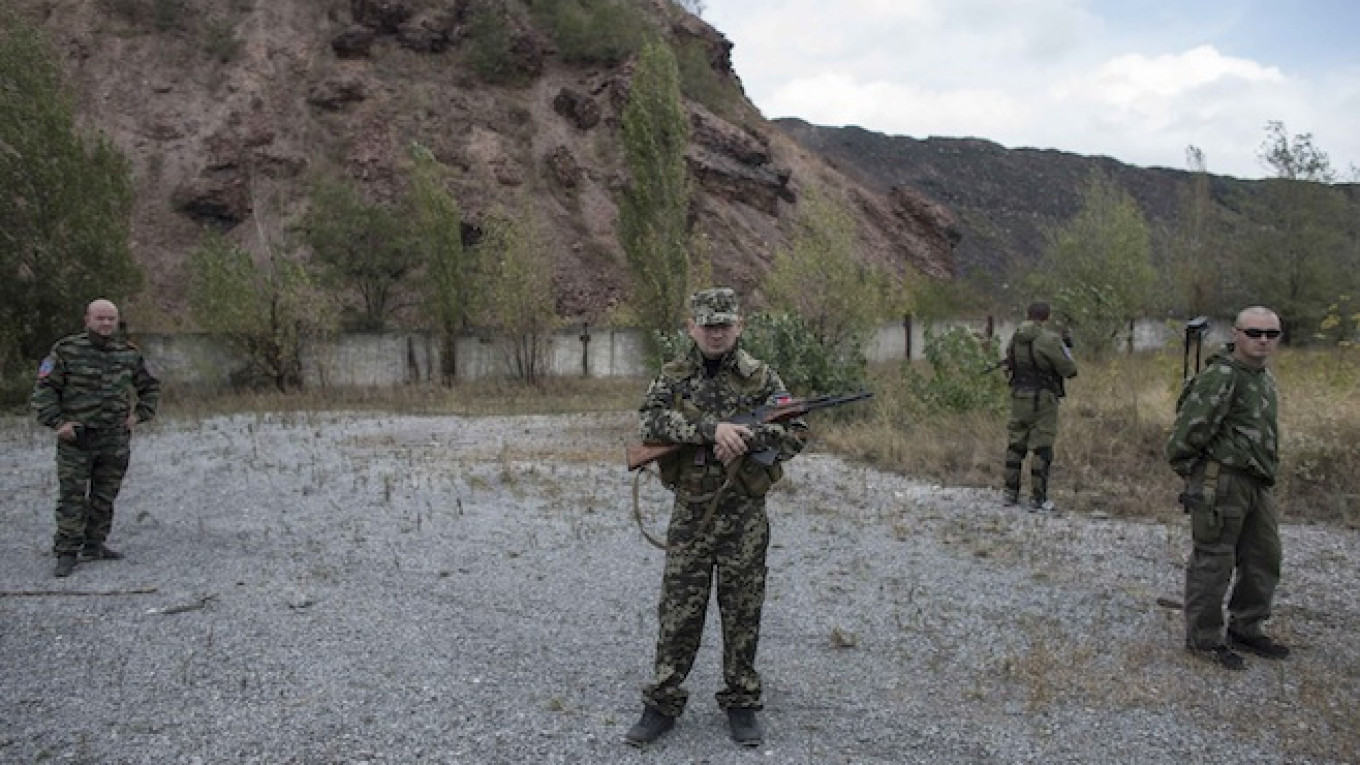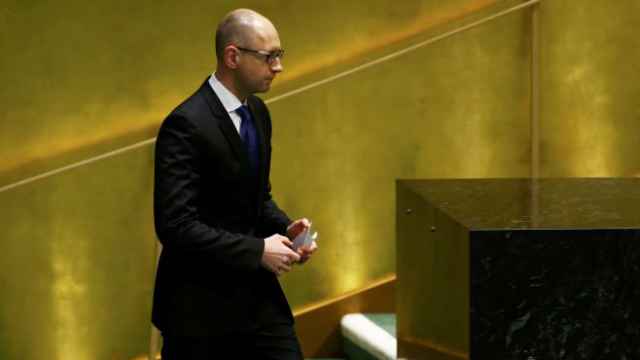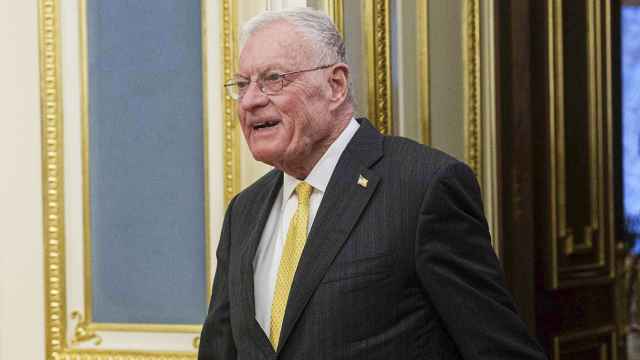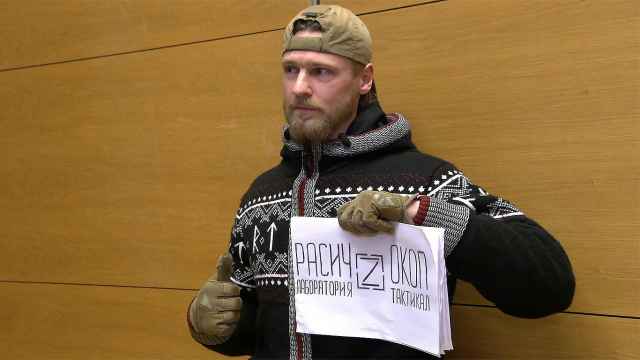Talks began on Friday to mark out a 30-km (19-mile) buffer zone between Ukrainian government forces and pro-Russian separatists in the country's east, but Moscow was coy about its role and denied that Russian military officials had taken part.
A statement by the military in Kiev said a Ukrainian team met a 76-member group of Russian officers north of the major Ukrainian city of Donetsk to work on establishing the zone, designed to put government and separatist forces out of striking range of each other.
"Today at 08:00 a working group … began its work. Representatives of the Ukrainian side, a monitoring group from the Organization for Security and Cooperation in Europe (OSCE)and 76 Russian servicemen took part," a statement said.
An OSCE spokesman in Kiev, Michael Bociurkiw, said monitors from the 57-nation security and rights watchdog had observed Ukrainian and Russian military officers at preliminary talks in the town of Soledar.
"We were there in line with our mandate. The purpose was to listen to all sides, evaluate the possible contribution the SMM [special monitoring mission] may play and to be helpful for the effective implementation of a cease-fire," Bociurkiw said.
In Moscow, the Foreign Ministry denied any of its military had met a Ukrainian team to work out details of the buffer zone.
"… All questions linked with realizing the cease-fire regime are to be discussed between representatives of the Ukrainian side and representatives of the separate regions of Donetsk and Luhansk regions," it said, referring to the separatists.
"The role of the Russian side ... is, together with the OSCE mission, to provide this process with all necessary support."
Separately, a ministry spokesman denied the presence of Russian military, saying: "There are no service personnel of ours there. This statement [by the Ukrainian military] does not correspond to reality."
There was no ready explanation for the disparity in versions of who was at Friday's meeting, though Moscow appeared at pains to minimize its own role and put the accent on the need for Kiev to talk to the separatists.
Mapping Out Buffer Strip
The Kiev military statement made no mention of any participation by separatist representatives in Friday's meeting. One monitoring insider said the Ukrainian and Russian delegations had been headed by a general on each side.
The meeting was to map out the line and limits of a buffer zone from which artillery and other heavy military equipment would be withdrawn, and underpin a fragile cease-fire called by Ukrainian President Petro Poroshenko on Sept. 5.
Envoys from Ukraine, Russia and the OSCE agreed at a meeting in the Belarussian capital of Minsk on Sept. 19 to establish the buffer strip and reinforce the truce which Poroshenko called after government forces suffered big battlefield losses.
Despite what Kiev and Western governments say is incontrovertible proof, Russia denies the direct involvement of its troops in backing the rebels against forces loyal to Ukraine's pro-Western government, as well as accusations that it has been arming them.
The Ukrainian leadership has attributed reverses on the battlefield to direct intervention by Russian troops in a conflict that has killed more than 3,000 people.
The Minsk memorandum foresees the warring sides each pulling out large-calibre artillery and other heavy weapons, and removing mines, to create a buffer zone that will put each out of striking range of the other.
A Ukrainian military statement said the zone would be divided into four or five security sectors which would be monitored by OSCE officials and by Ukraine and Russia.
"This group, in particular, will work on defining the lines of separation and defining the so-called buffer zone," Ukrainian military spokesman Andriy Lysenko said.
"It will monitor the fulfillment of the [Minsk] agreements, separate the warring sides and guarantee this 30-km zone," another military official, Vladyslav Seleznyov, said.
A Message from The Moscow Times:
Dear readers,
We are facing unprecedented challenges. Russia's Prosecutor General's Office has designated The Moscow Times as an "undesirable" organization, criminalizing our work and putting our staff at risk of prosecution. This follows our earlier unjust labeling as a "foreign agent."
These actions are direct attempts to silence independent journalism in Russia. The authorities claim our work "discredits the decisions of the Russian leadership." We see things differently: we strive to provide accurate, unbiased reporting on Russia.
We, the journalists of The Moscow Times, refuse to be silenced. But to continue our work, we need your help.
Your support, no matter how small, makes a world of difference. If you can, please support us monthly starting from just $2. It's quick to set up, and every contribution makes a significant impact.
By supporting The Moscow Times, you're defending open, independent journalism in the face of repression. Thank you for standing with us.
Remind me later.






